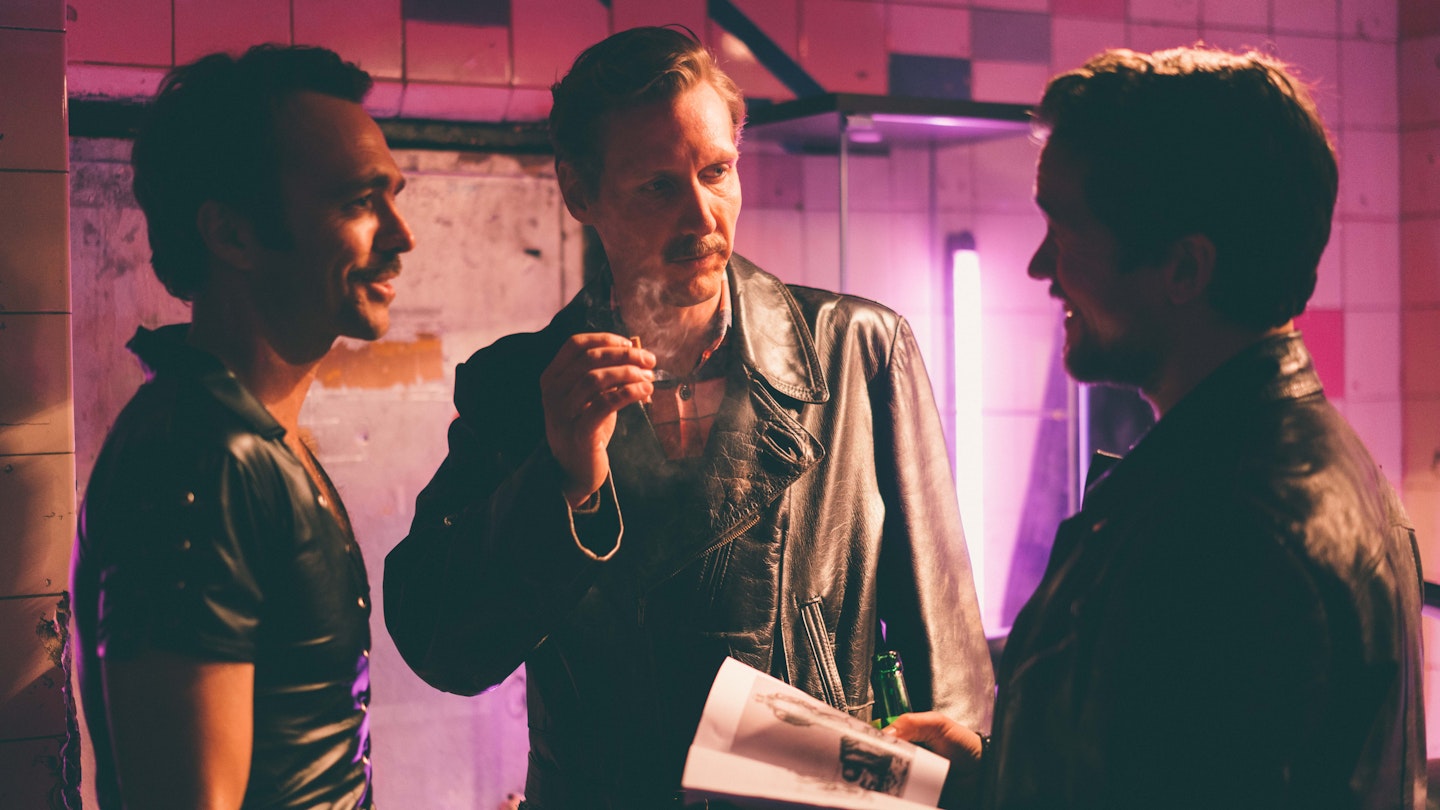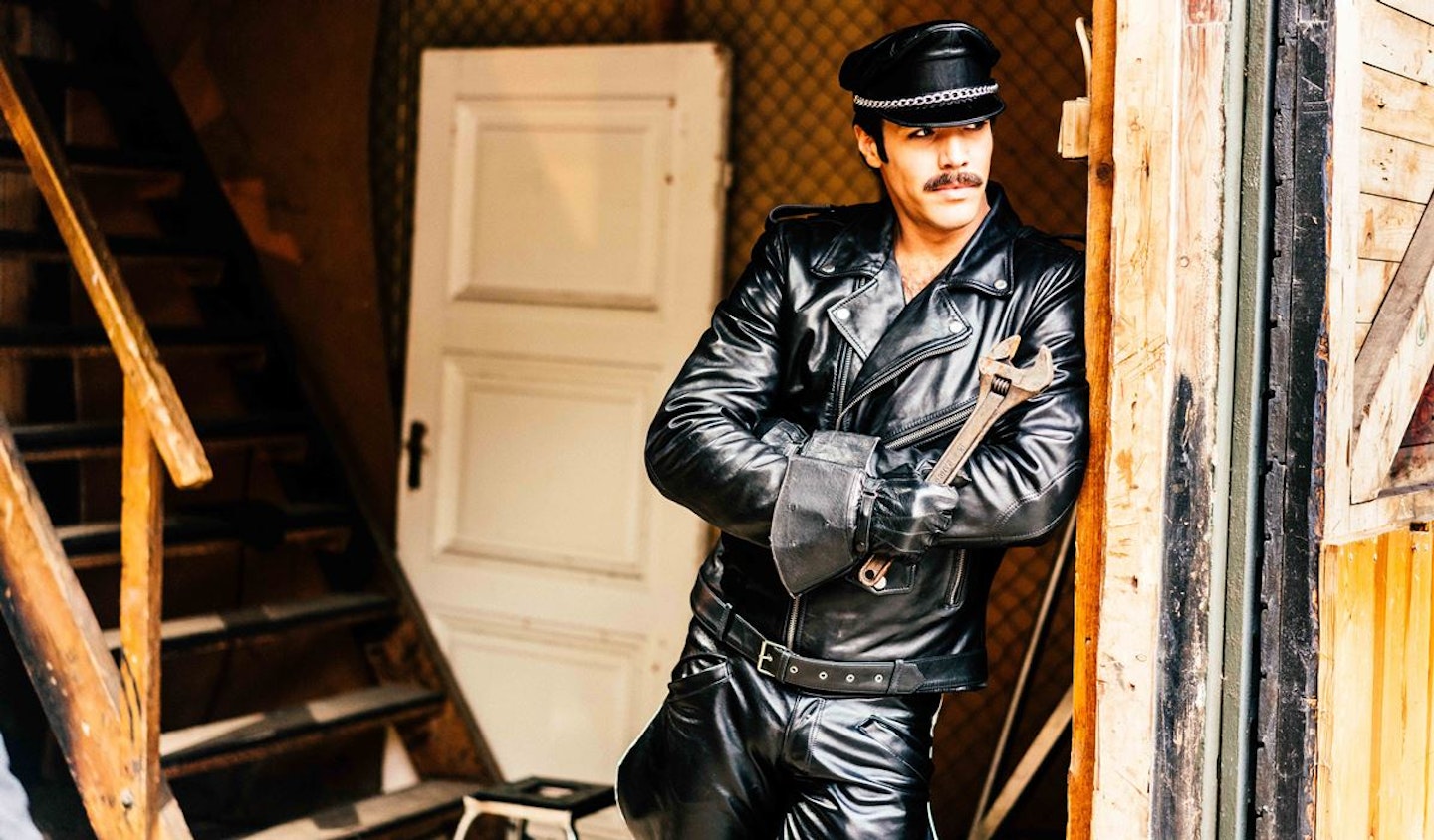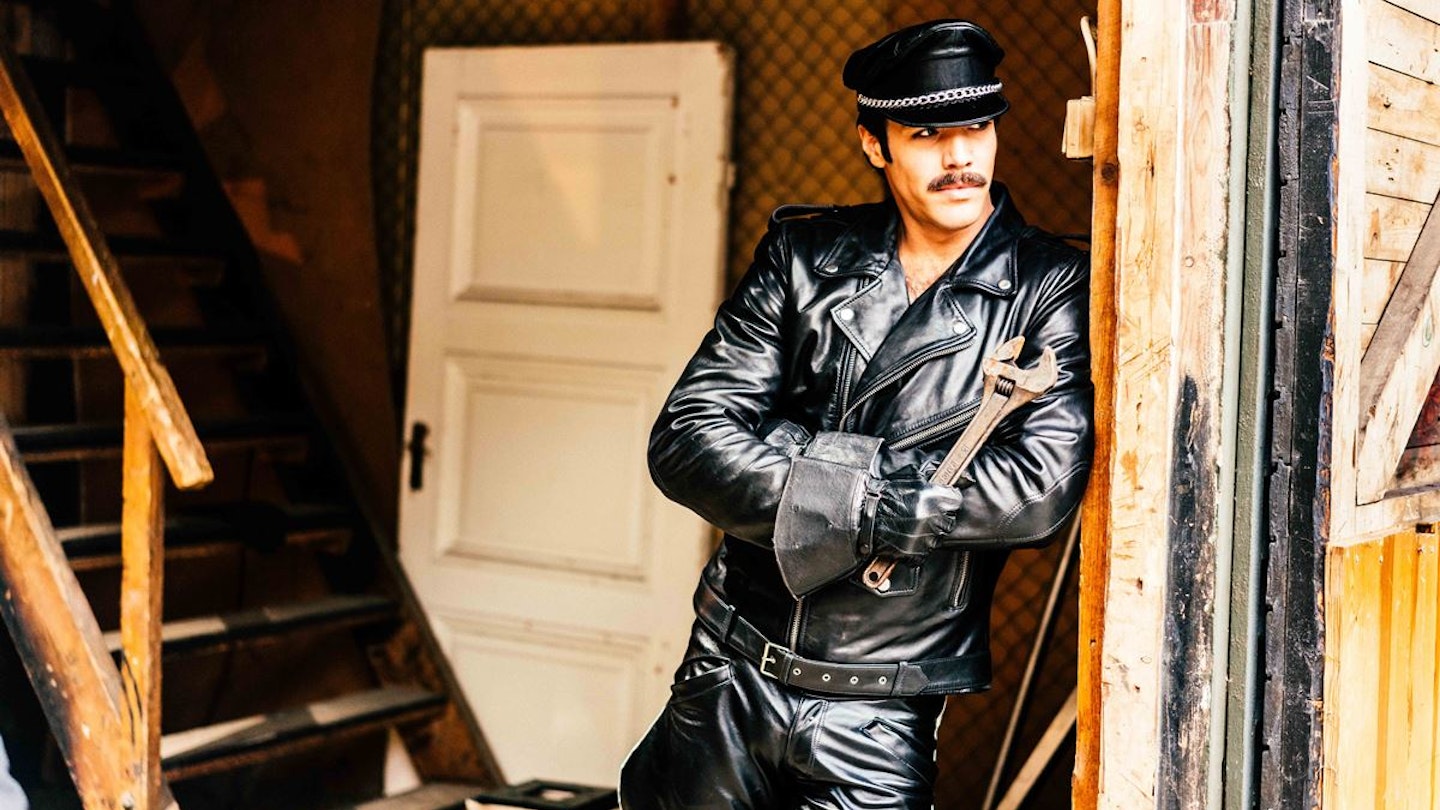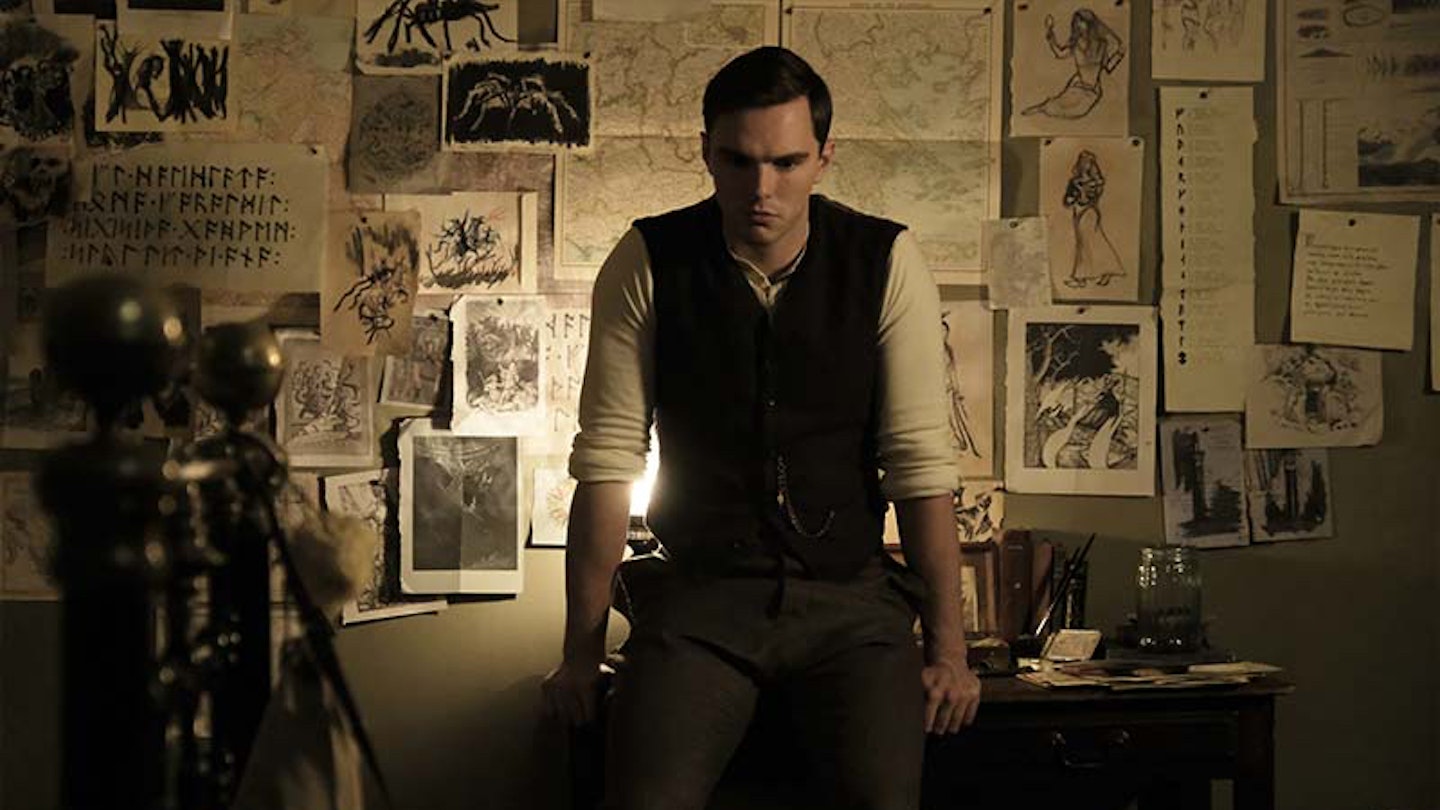In April 2014, Tom Of Finland became the first homoerotic artist to have his work featured on a postage stamp. During his 71 years, he produced around 3,500 drawings whose macho fetish aesthetic had an incalculable influence on gay identity and iconography in the post-Stonewall and AIDS eras. The debate has long raged whether Touko Laaksonen’s leather-clad hunks were pornographic or artistic, and acclaimed Finnish director Dome Karukoski opts for a markedly less provocative exploration than James Williams’s short, Boots, Biceps And Bulges (1988) and Ilppo Pohjola’s documentary Daddy And The Muscle Academy (1991). Yet this handsome and reverential biopic still offers a thoughtful introduction to a game-changing idol and the milieux he depicted.

The Finnish scenes are easily the most revealing, as twentysomething Touko Laaksonen (Pekka Strang) fights in the Continuation War against the Soviet Union and finds himself becoming increasingly fascinated by the uniforms of his German allies. A woodland liaison with Captain Heikki Alijoki (Taisto Oksanen) also proves a defining moment, as does the stabbing of a defenceless Russian parachutist, whose innocent good looks would continue to haunt Laaksonen after he returned home to share a flat with his prudish sister, Kaija (Jessica Grabowsky), and take a job at the advertising agency where she worked.
Evocatively designed by Christian Olander and photographed in moodily muted shades by Lasse Frank Johannessen, Laaksonen's nocturnal escapades in dimly lit Helsinki parks ably convey the brutal enforcement of the laws outlawing homosexuality. But the cell sequence following his arrest in Berlin while in possession of obscene etchings is much more potent, even though it concludes with a coincidence that neatly nudges the narrative on to a reunion with dancer Veli Mäkinen (Lauri Tilkanen), who becomes Laaksonen’s soulmate and encourages him to seek an American publisher for his distinctive illustrations.

Screenwriter Aleksi Bardy mischievously has Laaksonen’s biker creation, Kake (Niklas Hogner), lounge on a couch behind him in his bedroom as he perfects his strapping physique and strutting attitude by the light of a single bulb. He also has fun explaining how the editor of Physique Pictorial magazine came up with the Tom Of Finland moniker that would prompt Durk Dehner to make Kake the posterboy of gay liberation in 1970s America. But (as he is called here) Doug (Seumas Sargent) and his boyfriend Jack (Jakob Oftebro) barely register after they introduce ‘Tom’ to the temptations of sun-kissed California. Consequently, no insights are offered into the circumstances that led to his monochrome images of muscular bubble butts, square jaws and outsized appendages capturing the gay imagination and prompting the smut vs art standoff. Similarly, the script shies away from assessing in any detail the claim that Tom was somehow responsible for the spread of AIDS by encouraging homosexuals to live out their fantasies. Even his response to the epidemic is reduced to a heroic montage involving a Jewish printer doing his bit to ensure the publication of a book advocating safe sex.

This reluctance to explore queer politics and confront the prejudices and persecutions that the LGBT community endured during Laaksonen’s lifetime is damagingly enervating. But Karukoski’s heart is in the right place and he manages some poignant moments, as Laaksonen leads his bivouacking troops in singing the national anthem, the family celebrates midsummer at an idyllic lakeside retreat and the siblings momentarily forget their squabbles to draw each other.

